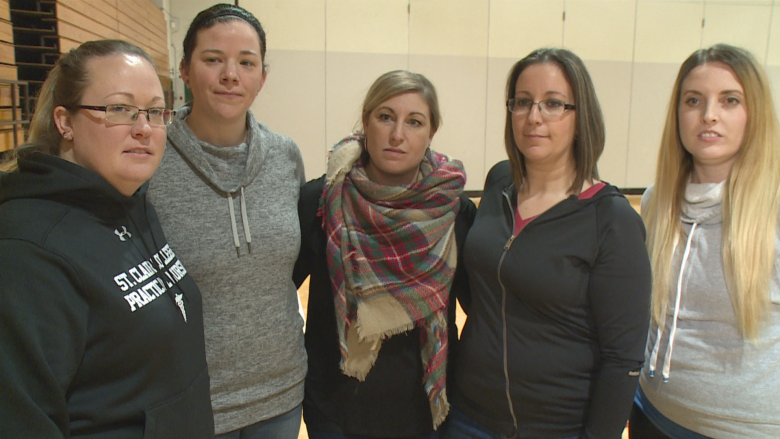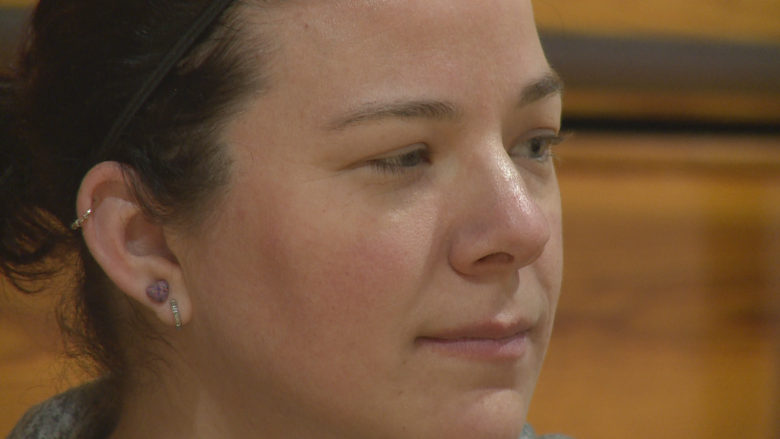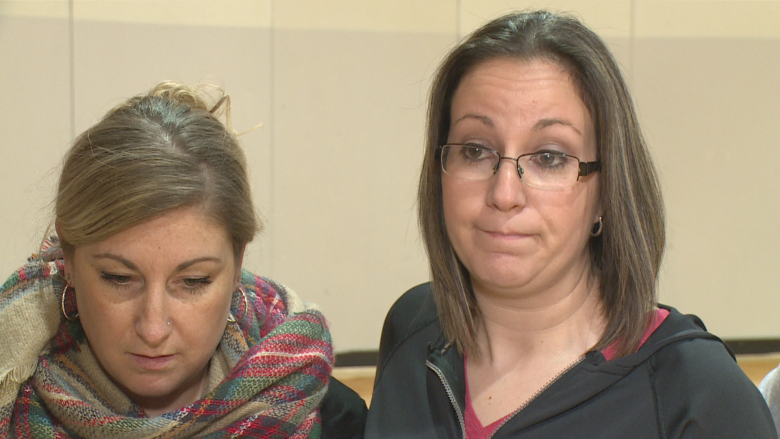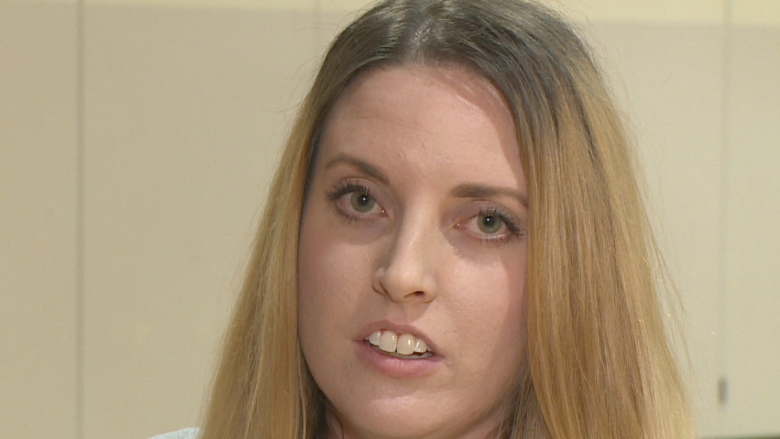In their words: Surviving Windsor Wildcats offer advice, support for Humboldt Broncos
In January 2005, the under-21 Windsor Wildcats were traveling on a bus during a hockey tournament in Rochester, New York when it crashed into an illegally parked tractor-trailer.
The team's coach, Rick Edwards, his son Brian, 13, and Cathy Roach, the mother of the team's goalie, Erin Roach, died in the collision.
Ernest Zeiset, 42, of Pennsylvania, was the driver of the truck. He was also killed.
On Monday morning, five surviving members of the Windsor Wildcats team met at the St. Clair College gym to share their thoughts, advice and support for those connected to the tragic bus crash involving the Humboldt Broncos junior hockey team that killed 15 people and injured 14 others.
CBC Windsor's Melissa Nakhavoly sat down with the team to talk about dealing with the pain, the importance of counselling and the road to recovery.
Here's an edited version of their conversation.
On the moments after impact:
Tiffany Stroud: "I didn't know what was going on. You were kind of just, I don't know, out of it, really. Sad, confused mostly."
Jessica Banham: "Being one of the ones that can get around, trying to get to all your teammates, finding out what's happening. Just seeing everything that's going on. Having your teammates ask you what has happened, who's around, what happened to everybody and not being able to fully answer them ... it's just, you can't even explain the emotions that you feel going through that."
Janna Desmarais: "You're stuck where you're stuck and if you're injured then you obviously can't go around looking for people. So you're just sitting there, laying there, wondering how are my teammates? How are everybody else? And what happened. Because a lot of times you're just sitting there in shock."
Meagan Cvetkovski: "It's like a foggy dream. It's more of a nightmare, actually. You are in disbelief. You don't know what to feel. You're torn in a thousand directions. You're sad. You're confused. You're searching. You're lost, really, you're lost. You're searching. Your heart is hurting. You don't know where to start. It's kind of a feeling of despair a bit because maybe you have some information of people who have passed and you're sad for tha,t but you also have a bit of survivor's guilt as well."
On the value of counselling:
Kelly Spry: "You don't get over it, but you rely on your teammates, you rely on your friends, your family, the hockey community. We all went to counselling. We had group counselling, individual counselling and to this day we still lean on each other."
Banham: "I know when we get together it's very helpful for us to talk about it and although sometimes we don't want to talk about it and we don't want to bring up those memories, it's just some form of release that we can get knowing that we're all still feeling this — it's all still real to us and we're going through this."
Stroud: "I would suggest doing (counselling) sooner than later. I waited a really long time and it just affects your life more than you think. You think that you're fine and you can just move on, but unfortunately it'll be with you forever. They should just stick together and be there for each other."
On the grief:
Cvetkovski: "It comes in waves sometimes. Sometimes it's with us all the time and sometimes we think positively of memories that we have of these people and then it makes us smile, so we cherish those things and that's what kind of keeps us pushing forward. That and each other. We have a special bond that these players understand."
Banham: "I think in ways it changes. Although it doesn't go away, there's things that can come up, like becoming a parent. We've all gone through PTSD I'm sure, but the anxiety that comes with knowing what our parents went through, what these parents are going through — we can somewhat understand those feelings now as we couldn't when we were 19, 20 years old."
Stroud: "It's very hard and it's going to be a really long road, but at the end of the day with your friends and family — like look at us now — some of us have gotten married, had kids, had careers and we still stick together. We still see each other. You can grow as a person and not necessarily move on, but kind of cope with it. Eventually it will get better."
Cvetkovski: "[We're] living with the people that we lost everyday as kind of our guiding light and our motivation to do the best that we possibly can do in our lives."
On reaching out for support:
Banham: "We've gone through something similar. If they need anyone to talk to they can reach out to us. It's been 13 years for us. We've all found different ways that help us deal with things. There's no right way. Just please reach out if you need anything."
Cvetkovski: "My heart breaks for these guys because a teammate is a special bond. You grind it out on the ice together, you go through the trenches together ... it's difficult, it's difficult no matter what."
Banham: "We weren't all from Windsor and I know they're not all from the same place. But they're just a phone call away. Keep connected. They need each other. Don't let each other go."





